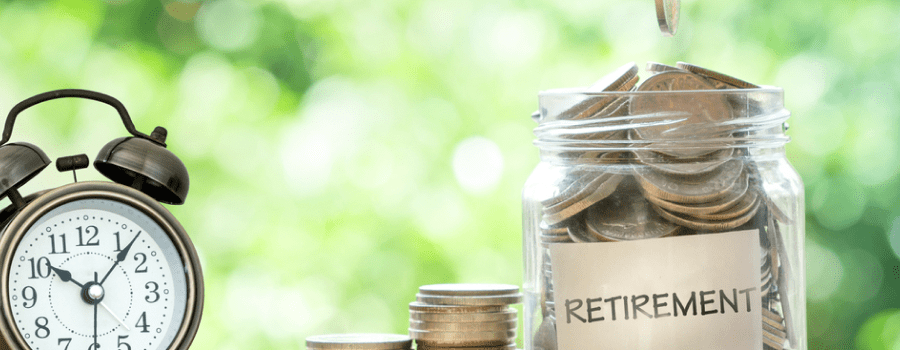There is no easy way to say this – most people who had been planning their retirement and creating a savings fund for their golden years were certainly affected during the pandemic. It is obvious that businesses shut down, and people lost their jobs during the lockdown. Hence, naturally, even those with an organised plan suffered at least some minor setbacks during this phase.
Those having a retirement plan during this time would have had to borrow money from their savings and emergency funds to keep the retirement planning steady. However, the impact of Covid on retirement planning may have been more for those who invested in market-linked instruments as the financial markets were affected. Read on to understand the probable effects the pandemic had on retirement plans.
The Impact on Retirement Savings and Investments
It is no news that many companies and enterprises went out of business due to Covid-19 and the subsequent lockdowns. The loss of jobs caused people to turn to their savings to sustain their livelihoods and take care of their families.
An important initiative some life insurance providers took during this phase was enabling policyholders to revive their lapsed policies within 5 years of the first unpaid premium’s due date.
But retirement planning is not a one-time effort for anyone. Even if you are planning to invest a lump sum amount buy an annuity, you will need to have accumulated a decent amount over the last many years that will help sustain your family and you after retirement.
Likewise, if you want to pay regular premiums for your retirement policy, you will have to invest in the plan regularly for 15-20 years before you can buy the annuity at the start of your retirement.
It is for this reason that the impact of Covid on retirement planning and savings may not have been great, with the exception of some market-linked instruments. Even before the pandemic, other local and global political and economic changes have affected market movements, which have caused people to plan their retirement, keeping in mind the various market and portfolio risks involved. Therefore, Covid cannot affect your savings and investments to a great extent if you have been investing regularly for your retirement over the last decade or longer.
Moreover, a lot of people planning their retirement always hedge their market-linked investments with other savings and investments that offer fixed and guaranteed1 returns since market-linked investments offer variable returns, depending on the market’s performance.
How to Plan your Retirement after Covid?

It is likely that a lot of people who may have been about to start their retirement planning may have lost their jobs during the pandemic. This can directly impact your retirement plans, savings, and investments since the loss of a job or your main source of income could have set you back by a couple of years. But now, with the job markets opening up and people developing new working habits or even their own home-grown ventures, starting a retirement plan anew will not be a hassle.
To start planning your retirement, you need to ascertain how much wealth needs to be accumulated for the future. For that, apart from starting the process a good 10-20 years before retirement, these are the other steps to take:
- Create a Future Budget
Once you stop earning a salary, it is important to set up a budget even though your retirement plan renders a regular income. Consider every little expense along with any major financial commitments so that you and your family are able to fulfil all post-retirement needs and goals. You can cut down on trivial and unnecessary expenses to save more. By creating a budget, you can choose a retirement plan that allows you to invest and accumulate the required funds.
- Pay Off Loans
If you have already taken a loan or need to take one during your working years, do so knowing that it needs to be paid off at the earliest. If you carry your debts until your retirement, it will only be an additional financial burden for you. Therefore, it is preferable that your time and settle all EMIs and other debts while you have a stable salary from your job. This can help you save for other retirement needs, such as a hobby or a small-scale business.
- Go for Automatic Transfers
When you start investing in a retirement plan, many things need to fall in place during your golden years. All your utility bills will still have to be paid, and most of the time, people get busy catching up with life in the first few years of retirement. To avoid missing these bill payments, you can set up an automatic transfer from your retirement account or bank account to these payments. Always have enough funds in your account throughout the month.
- Create Emergency Savings
Even if you have planned out all your post-retirement needs and are saving up for the same, consider having an additional fund which can be used for dire emergencies such as a healthcare risk. Even if you develop a mild health condition after retirement, these expenses will need to be handled, and this fund can help you do so.
Conclusion
The reason most people need to create a retirement plan is that most companies and businesses are moving away from fixed pension benefits and, at the most, will pay out EPF benefits or gratuity in the case of group insurance plans if needed. Therefore, now retirement planning is all about buying a retirement insurance plan that offers guaranteed1 and regular income along with life insurance coverage or opting for additional savings and investment instruments.
L&C/Advt/2022/Dec/3121









 FOR EXISTING POLICY
FOR EXISTING POLICY 
 FOR NEW POLICY
FOR NEW POLICY 






